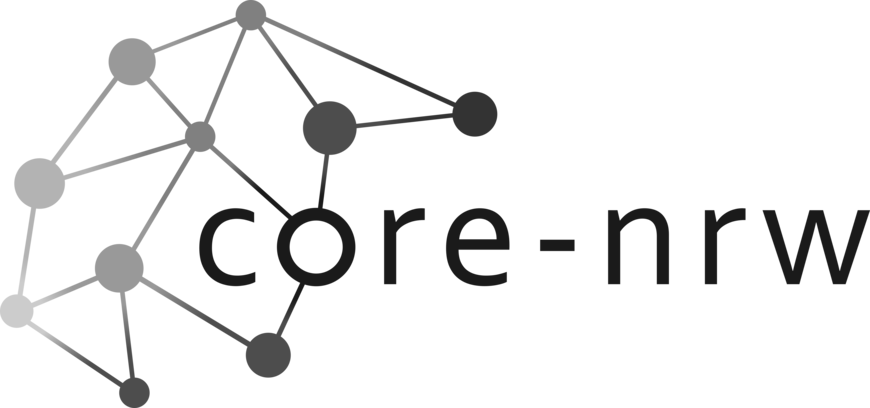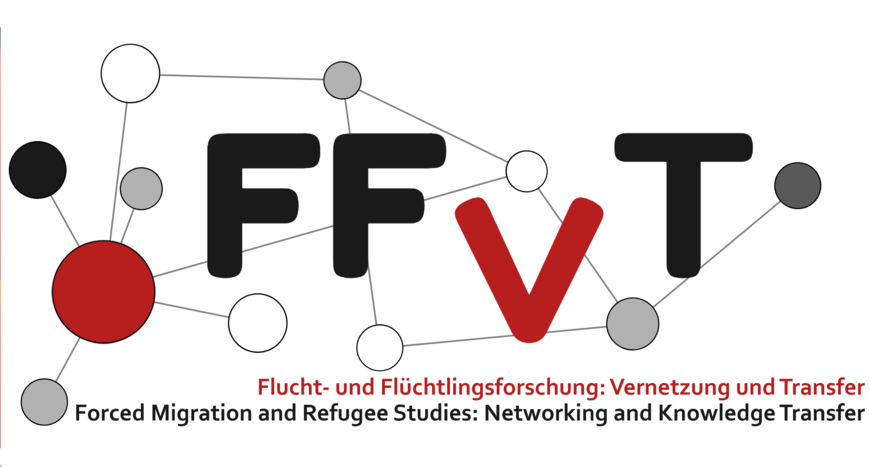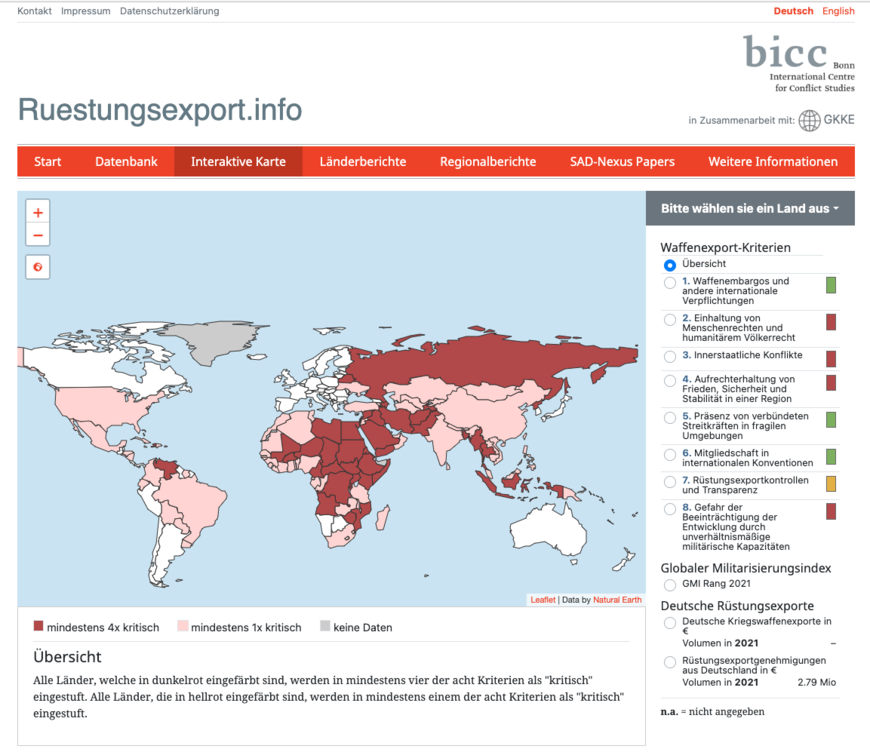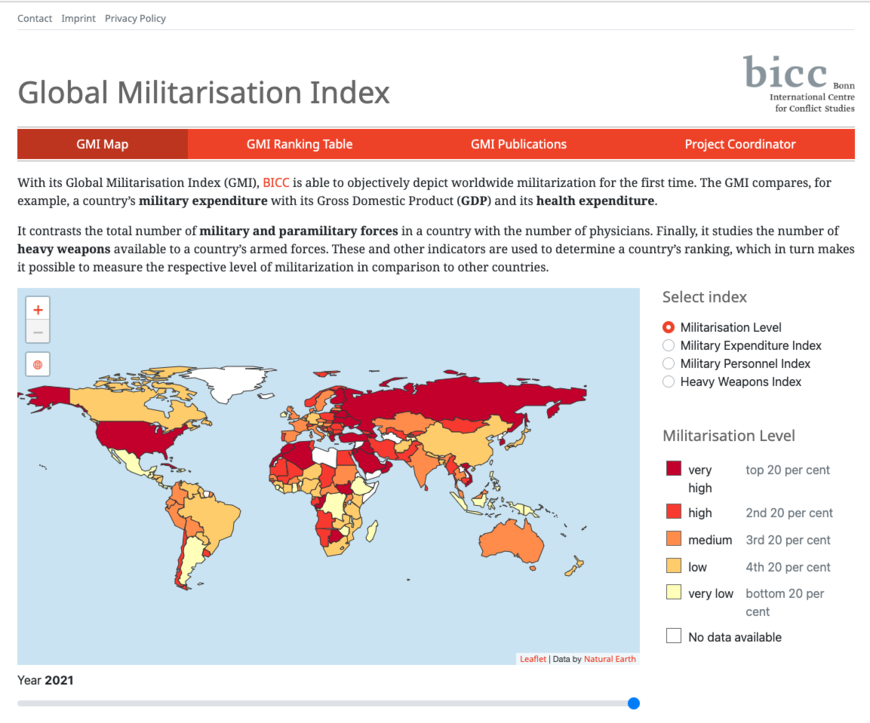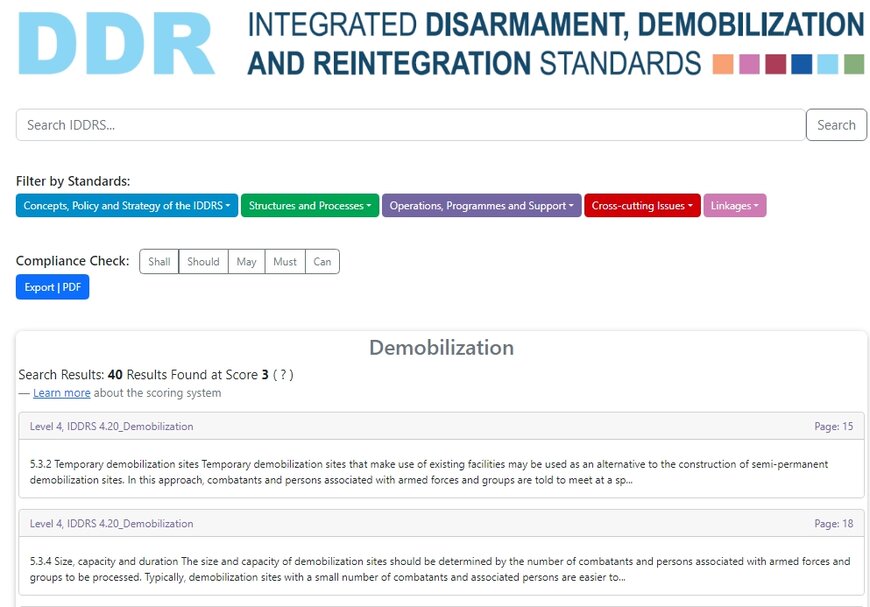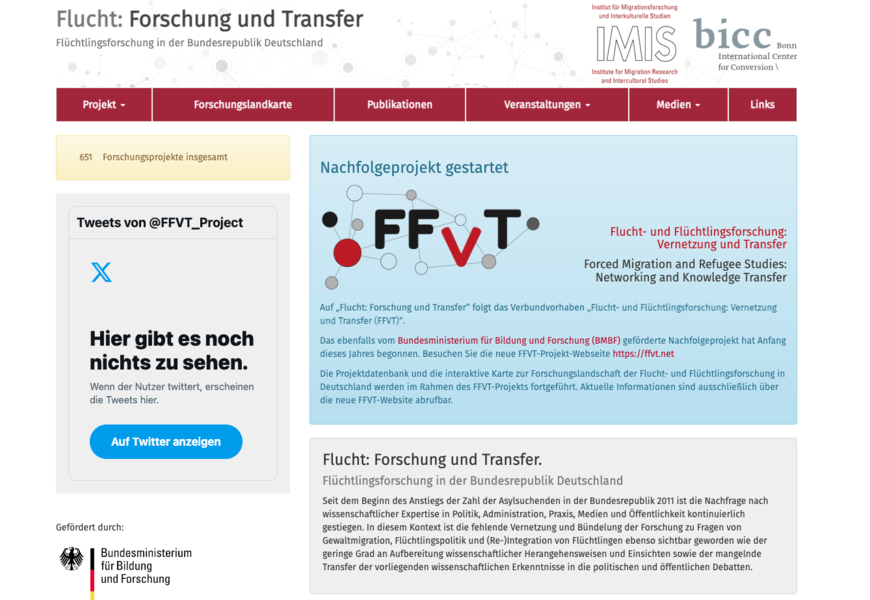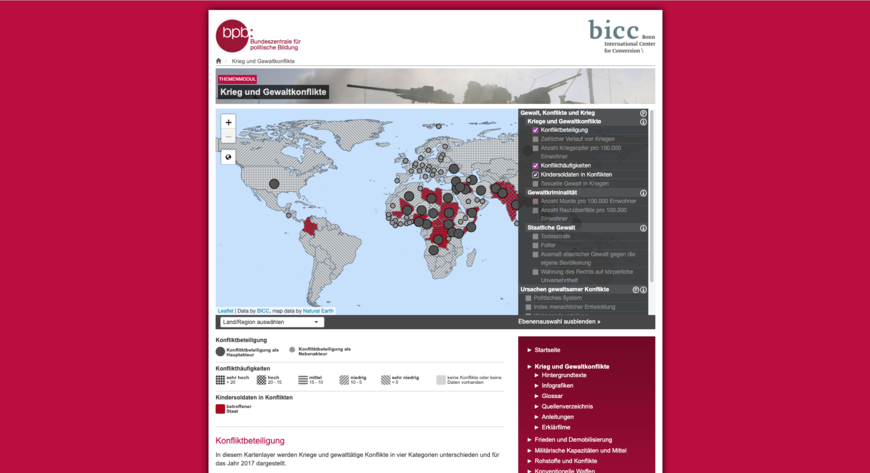Websites
bicc designs, maintains and hosts a number of different websites on a variety of topics. Please note that some of the older websites are no longer maintained and can thus be out of date.
CoRE-NRW - Connecting Research on Extremism in North Rhine-Westphalia
The network Connecting Research on Extremism in North Rhine-Westphalia CoRE-NRW, was founded in 2016 to promote interdisciplinary exchange between researchers working on radicalisation and extremism in North Rhine-Westphalia. CoRE-NRW also strengthens the transfer of knowledge between research and practice. Since 2019, the coordination unit of the network is located at bicc - Bonn International Centre for Conflict Studies in Bonn. On behalf of the Ministry of Culture and Science of the German State of North Rhine-Westphalia, it regularly organises events and network meetings, publishes a publication series and runs a website.
www.core-nrw.de.
Forced Migration and Refugee Studies: Networking and Knowledge Transfer
“Forced Migration and Refugee Studies: Networking and Knowledge Transfer” (FFVT) aims to strengthen interdisciplinary research on forced migration and refugees. The peace and research institute bicc, the Centre for Human Rights Erlangen-Nuremberg (CHREN), the German Development Institute / Deutsches Institut für Entwicklungspolitik (DIE) and the Institute for Migration Research and Intercultural Studies (IMIS) at the University of Osnabrück are collaborating in this project (2020-2024). It is supported by the German Federal Ministry of Education and Research (BMBF).
https://ffvt.net
Sicherheit, Rüstung und Entwicklung in Empfängerländern deutscher Rüstungsexporte
On this website bicc publishes different data sets concerning the military sector, overall security environment, human rights situation and governance in all together 170 countries.
The website includes detailed country reports in PDF format on selected recipient states of German arms exports outside of NATO. The reports are only available in German language and were last updated in Spring 2023.
Furthermore, a large database examines the correspondence of 170 countries to seven evaluation criteria, which are based upon the EU Code of Conduct. In order to classify each country, bicc pools a number of different data sets, for example from the Stockholm International Peace Research Institute (SIPRI), the World Bank, the United Nations, or Freedom House.
http://www.ruestungsexport.info
Global Militarization Index (GMI)
With its Global Militarization Index (GMI), bicc is able to objectively depict worldwide militarization for the first time. The GMI includes historical as well as current data, starting in the 1990s up to 2022, the most recent year for which data has been available. It provides further detailed analyses of specific regional or national developments. bicc’s aim is to contribute towards the debate on militarization and to highlight the often inconsistent distribution of resources.
http://gmi.bicc.de
The UN DDR resource center/Integrated DDR Standards (IDDRS)
The UN DDR resource center/Integrated DDR Standards (IDDRS) website can now be navigated with the help of a search tool. The search function makes it easier to find information quickly throughout all IDDRS modules and improves the user experience when searching for specific information in the IDDRS. This search function was made possible through the support from the Bonn International Center for Conflict Studies (bicc).
The Interactive Guide on Small Arms and Light Weapons
The SALW Guide contains technical details on individual types of weapons, their different versions, and their proliferation. Interested parties will be able to retrieve information that could be decisive for many arms control procedures and projects, including photos of weapons, detailed photos of differentiating criteria as well as photos and sketches of the markings, used by producers and countries of origin, and their position on the weapon. The database also provides information on SALW ammunition.
https://salw-guide.bicc.de/
StG-PoA SALW control database
The objective of this database is to provide AU Member States, Regional Economic Communities, Regional Bodies, Implementing Agencies, Donors, as well as academia, civil society and private researchers with a broad range of information relating to, legal frameworks, options for requesting technical support provided by the African-Union Roster of SALW-Practitioners as well as tools and state of the art publications on SALW control.
Transnational Figurations of Displacement
TRAFIG, Transnational Figurations of Displacement, is an EU-funded Horizon 2020 research and innovation project. From 2019 to 2022, 12 partner organisations will investigate long-lasting displacement situations at multiple sites in Asia, Africa and Europe and analyse options to improve displaced people’s lives.
https://trafig.eu/
Flucht - Forschung und Transfer
To strengthen scientific networking and to transfer knowledge from academia to policy are two central goals of the research project "Forced Displacement: Research and Transfer" (Flucht - Forschung und Transfer). bicc and the Institute for migration research and intercultural studies (IMIS) at the University of Osnabrück have developed an interactive online-map, which shows the diversity of research on (forced) displacement and refugees in Germany. An open search tool and keywords allow a targeted search for projects from various disciplines and with specific regional focal points.
Informationsportal Krieg und Frieden
New information portal of the German Federal Agency for Civic Education (bpb) and bicc provides background information on issues regarding security policy.
http://sicherheitspolitik.bpb.de (in German)
http://www.warpp.info/ (in English)



